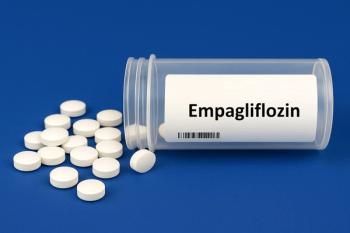
- Drug Topics August 2021
- Volume 165
- Issue 8
Exploring the Efficacy, Safety of Rotavirus Vaccines
A meta-analysis in JAMA Pediatrics looks at whether vaccines can prevent rotavirus gastroenteritis.
This article was originally published by
A meta-analysis in JAMA Pediatrics looks at whether vaccines can prevent rotavirus gastroenteritis.
Investigators searched the databases Embase, PubMed, the Cochrane Library, and Web of Science using terms such as “rotavirus” and “vaccin*.” Cohort and case-control studies as well as randomized clinical trials that enrolled more than 100 children younger than 5 years were included in the meta-analysis if they reported information on effectiveness, safety, or immunogenicity. The primary outcomes included rotavirus gastroenteritis, severe rotavirus gastroenteritis, and rotavirus gastroenteritis hospitalization. Outcomes for safety included serious adverse events, mortality, and intussusception.
A total of 58 studies met the criteria—20 randomized clinical trials and 38 case-control studies. The studies showed that rotavi- rus vaccine, live, oral suspension (Rotarix; GlaxoSmithKline) led to a significant reduction in rotavirus gastroenteritis and rotavirus gas- troenteritis hospitalization risk in children who were fully vacci- nated. The rotavirus vaccine, live, oral, pentavalent (RotaTeq; Merck) showed similar outcomes in fully vaccinated children. The vaccines also showed high protection against severe rotavirus gastroenteritis.
The investigators concluded that the high efficacy and safety profiles of rotavirus vaccines highlighted the importance of providing the vaccine to children everywhere. The similar profiles of both vaccines can make selection easier for public health authorities.
For reference, visit contemporarypediatrics.com
Articles in this issue
over 4 years ago
Expanding Access Takes Telepharmacy to the Next Levelover 4 years ago
New Prodrug for ADHD in School-aged Childrenover 4 years ago
Flu Season is Approaching, but Experts Don't Know What to Expectover 4 years ago
OTC and Prescription Products Can Relieve Psoriasisover 4 years ago
How to Tactfully Handle Naloxone Counselingover 4 years ago
FDA Grants Priority Review to Tezepelumab for Severe Asthmaover 4 years ago
2021 Good Neighbor Pharmacy of the Year Finalist SpotlightNewsletter
Pharmacy practice is always changing. Stay ahead of the curve with the Drug Topics newsletter and get the latest drug information, industry trends, and patient care tips.























